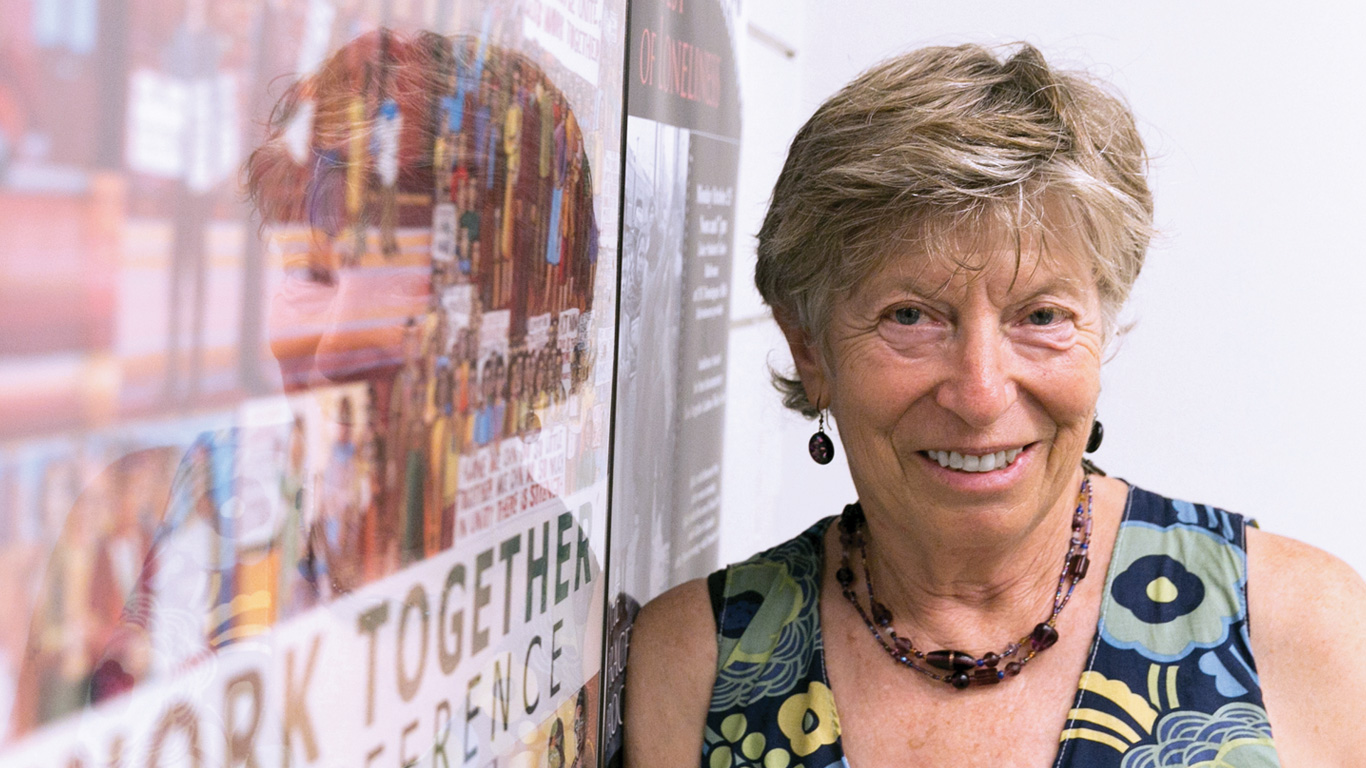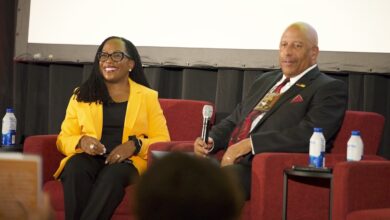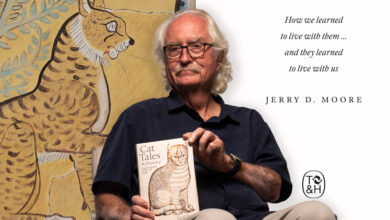
Alternative energy industries are booming, driven by the growing corporate, consumer, and government awareness of the impacts of climate change. As growth continues, how will the tens of thousands of unemployed fossil fuel workers find “just transitions” to good-paying jobs they will need to support their families?
With that question in mind, CSUDH Professor of Interdisciplinary Studies Vivian Price joined a team of five researchers from universities across the country to launch the Just Transition Listening Project (JTLP) in the spring of 2020, led by the Labor Network for Sustainability.
Their goal was to learn from workers, and environmental justice and Indigenous activists about transitions in the past and their hopes for the future. The research culminated in a comprehensive report, “Workers and Communities in Transition,” that documents how these groups suffered through poorly handled shutdowns and tried to create positive solutions.
Serving on the JTLP organizing and research teams, Price, who is also former coordinator of the Labor Studies program at CSUDH, played a significant role in the research process, conducting nearly one-third of the more than 100 virtual interviews with groups across the country and participating in writing the report.
Along with Vivian Price, the Just Transition Listening Project was led by Drs. Mijin Cha, assistant professor of Urban and Environmental Policy at Occidental College; Dimitris Stevis, professor of Political Science at Colorado State University; Todd Vachon, a postdoctoral associate in the Department of Labor Studies and Employment Relations at Rutgers University, and Maria Brescia-Weiler, an environmental and labor researcher.
“Working on the report was an extraordinary opportunity to bring in my own expertise on labor, especially my work with fossil fuel workers and the trades to bear on this question,” says Price. “Through this research I have been able to expand my research on environmental justice, something else I have worked on extensively in the past.”
The energy shift is of growing concern among climate justice advocates, who are worried about the future, not only for people in fossil fuel, but many others who have suffered transitions in the past and know firsthand what workers and communities need.
“Hundreds of thousands of workers could be affected, as well as small businesses that are dependent on fossil fuel industries. It also affects jobs in the public sector,” says Price.
One of the transition cases the team studied focused on a coal power plant community in New York State. “When the plant shut down, there was less money to pay local teachers because the property tax from the plant provided substantial support for firefighters, police, and teachers,” Price explains. “There are unexpected repercussions when an industry is in decline. In that town, a number of the stakeholders came together and were able to get the state to set up a fund to help fill the gap.”
Three main themes arose during the listening sessions with workers and members of fossil fuel-dependent communities, according to Price, which undergirded the JTLP report: the scope of the problem and who is being affected; the process by which groups came together to negotiate a plan; and an analysis of past and future pathways to solutions.
Since 2016, Vivian Price has collaborated with Ellie Zenhari, associate professor of art and design at CSUDH, to document working conditions at the Ports of Los Angeles and Long Beach, and in South Bay oil refineries. Funded by CSU Research, Scholarship and Creative Activity and other grants, they visited workplaces and produced several projects with their students. They also worked with the Watts Community Labor Action Committee on several initiatives on environmental racism.
The team looked at seven case studies of imminent or looming shutdowns where labor unions came to the table with partners, such as local residents, environmental justice advocates, and Indigenous communities to learn from each other and build a shared vision for change.
“We wanted to elevate the voices of people most impacted by industrial transition. In the United States, labor unions are not formally included in policy decisions like they are in Germany, for example, so all the protection they have is contract language. When a plant shuts down, a key problem they face beside loss of a job is the loss of medical care.” Price says.
Price added that local residents have mixed feelings about shutdowns. “They may be adversely affected by the pollution, they may have relatives who were employed, they may have found themselves excluded from employment because of past bias” she says. “We were interested in understanding how groups with different interests have found ways to work together.”
The Labor Network for Sustainability organizing committee included labor leaders, environmental and Indigenous activists, and researchers, providing a strong basis for developing interview questions. One set that emerged from discussions was aimed at workers; another set was aimed at people who were grounded in environmental justice and leadership. The aim for both was to take an oral history approach to understand the whole person.
“We agreed to keep everything anonymous to maintain confidentiality, so that people felt they wouldn’t be put in an awkward position in the future. Some of the hardest questions focused on how to gain trust among the different groups, what people are willing to compromise over, and how to create programs that are well funded and include oversight for those most affected,”Price shared.
“Some workers are offered jobs in other states and have to relocate, breaking up families and communities,” she adds, “but there are models of proactive programs that prepare workers for change, provide individual counseling, training and wage replacement for part-time and seasonal workers as well as full-time employees.”
The final component of the study focused on solutions and proposed ideas for the future. Based on its findings, the JTLP report outlines recommendations for policymakers, labor and environmental organizations, and for future research. Together with testimonies from interviewees, these were presented at a Congressional briefing in March 2021.
A key finding in the report was that labor law needs to change to make it easier for workers to unionize and make new industries provide good pay and working conditions. Plans for supporting workers and communities in transition need to be developed and well-funded to focus on local conditions and specifically address the needs of workers and disproportionately impacted communities. The federal government also needs to play a key role.
The report also argues that sustainable development needs to be informed by the people most impacted. “The green economy is not without challenges. Solar and wind farms are known to take over public land and be built on Indigenous territory,” says Price. “So, there are definitely more questions to ask; ‘How can we use the urban built environment for solar rather than putting the burden on sacred desert land,’ and ‘How do we structure the economy so that it protects life and the planet rather than being based on making a profit?’”









